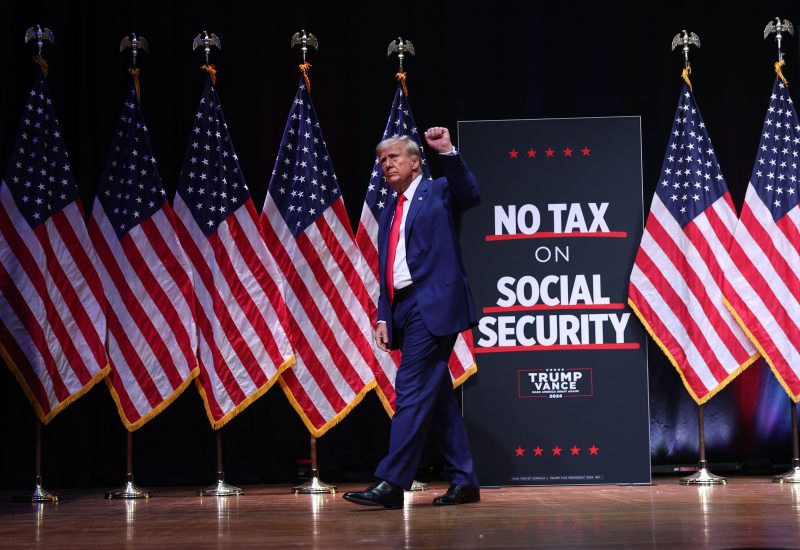In a recent speech in North Carolina, former President Donald Trump made a noteworthy statement signaling his openness to expanding tariff plans as a means to address trade imbalances and protect American interests in the global economy. This move has raised eyebrows and sparked discussions among economists, politicians, and industry experts worldwide.
Trump’s stance on tariffs is not new; during his presidency, he imposed tariffs on numerous countries, most notably China, in an effort to reduce trade deficits and bring manufacturing jobs back to the United States. While his policies were met with mixed reactions domestically and internationally, they resonated with many Americans who felt that the country had been taken advantage of in trade deals.
The prospect of expanding tariff plans under a potential second Trump administration or within the Republican party has been met with both support and criticism. Advocates argue that tariffs are necessary to protect American industries, workers, and intellectual property from unfair competition and to bolster domestic production. They believe that tariffs can be a strategic tool to incentivize trading partners to negotiate more favorable deals for the United States.
On the other hand, critics of expanding tariff plans caution that protectionist measures could lead to retaliation from trading partners, triggering a trade war that could harm global economic growth and disrupt established supply chains. They argue that tariffs often result in higher prices for consumers, decreased export opportunities for American businesses, and increased uncertainty for investors.
The potential expansion of tariff plans also comes at a time of heightened geopolitical tensions and economic uncertainty, with the United States facing challenges ranging from rising inflation to supply chain disruptions caused by the COVID-19 pandemic. In this context, the decision to pursue a more aggressive trade policy could have far-reaching implications for the U.S. economy and its global standing.
It remains to be seen how the debate over expanding tariff plans will unfold in the coming months and whether Trump’s signal of openness will translate into concrete policy actions. As the world watches and waits for developments on this front, one thing is certain: the issue of tariffs will continue to be a point of contention and discussion in the ongoing discourse on trade and economic policy.



























